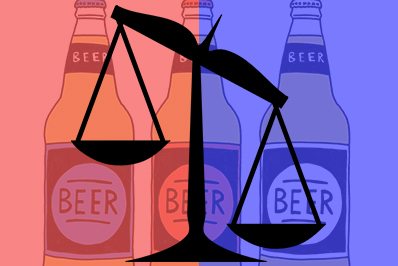By Clyde Darrin Myers
A “Blue Law” is one in which prohibits certain activities, usually types of commerce on Sundays. It’s really hard to argue that these laws are anything but absurd. Ask lawmakers about them and most will concede that the laws are outdated, but that changing them would be very low on the priority list, considering the “big issues” facing the state. But to say that these laws are outdated implies that there was ever a time when they were appropriate, fair, or even in the best interest of the public or the marketplace in any fashion. I’m not sure how reducing the ability of some Hoosiers to earn income one day per week (14% of available earning days) or reducing the number of taxable sales transactions 52 days out of every fiscal year was ever in the best interest of anyone, except maybe those that wanted to keep their competitors from working on Sunday. From a secular perspective, how could one argue that restricting incomes, economy, and people’s livelihoods is a good thing? From a Christian perspective, how could one argue that restricting incomes, economy, and people’s livelihoods is a good thing?
So what are these Blue Laws in Indiana? Well, we have two industries that apparently create such a public nuisance, such a threat to society by peddling their wares that they must be stopped! But… just on Sunday. Saturday and Monday, though, these products seem to be benign. Of course, I am talking about alcohol and automobiles. That’s right, in Indiana, you can’t buy a car on Sunday. You read that correctly, it’s illegal for a dealership to sell cars on Sundays in Indiana and several other states.
One might be able to construct a coherent argument that alcohol, being an addictive substance, shouldn’t be easily obtained and that restricting the sale of it in some ways might benefit society. I disagree with that premise but I’d at least entertain the argument. However, I simply cannot fathom a reasonable rationalization for a ban on the Sunday sales of automobiles. In any case, the principle of the situation is product agnostic.
There is no difference between cars, alcohol, guitar picks, guns, smartphone chargers, or any other product in this regard. If there is a genuine public nuisance created, a specific negative outcome of some kind, that is a consequence of the sale of a product, specifically on Sunday, but not on Saturday, Monday, or any other day, then that data should be easy to track and that threat to the public safety or wellbeing should be easily quantified. In the case of alcohol, we should expect lawmakers to be able to show how many lives are saved, how many fewer domestic battery situations there are, or the number of drunk driving incidents that are avoided by the Sunday prohibition of carry-out alcohol. As for car sales, they should be able to show… I don’t know what… how much tax revenue they failed to generate? I’m still wrapping my mind around that one.
These laws illustrate how the state meddles in the marketplace and decides which business models they like and which ones they don’t, based on absolutely no data. This is why sales of used cars are legal on Sundays between individuals, but dealerships are forced to remain closed. This is why alcohol can be served inside restaurants and bars for on-site consumption on Sundays but carry-out is not allowed, even though public consumption poses the more present and obvious public danger. Additionally, some retailers like wineries and breweries are permitted to sell Sunday carry-out, but liquor stores, grocery stores, restaurants, and drugstores cannot.
Meanwhile, in Indianapolis, Republican lawmakers continue to vote against your right to choose your own moral code and Democrats see your moral code as an opportunity to extract license fees and taxes from you. The Libertarian Party is the only political party that is suggesting that all retailers should be able to sell whatever they want to anyone that wants to buy it, on any day of the week, and that Hoosier consumers and entrepreneurs should not be burdened with the costs of these absurd regulations. With the legal roadblocks out of the way, consumers can vote with their dollars which business models succeed and which ones fail, leaving the Statehouse free to work on those “big issues.”

